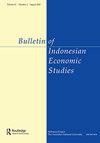The Status of Palm Oil Under the European Union’s Renewable Energy Directive: Sustainability or Protectionism?
IF 2.3
2区 经济学
Q1 AREA STUDIES
引用次数: 9
Abstract
According to the European Union’s recast Renewable Energy Directive (RED II), the EU aims to phase out feedstock biofuels that involve high indirect land-use change (ILUC) by 2030, which includes crude palm oil only. Indonesia, the world’s leading producer of crude palm oil, contests this regulation, claiming that the classification of biofuels as being produced with high- or low-risk ILUC is discriminatory and inherently protectionist. This study examines the critical ambiguities of protectionism and sustainability, using a legal framework to empirically ascertain the nature of RED II and Indonesia’s institutional response. Southeast Asian palm oil and European vegetable oils (such as rapeseed and sunflower oils) are considered ‘like products’ under World Trade Organization criteria that emphasise product-related process and production methods. RED II has the potential to qualify for exemptions under GATT article XX. However, the extraterritoriality of RED II, which aims to reduce emissions, is contested, as is the unilateral nature of the ILUC risk measurements.棕榈油在欧盟可再生能源指令下的地位:可持续性还是保护主义?
根据欧盟修订的可再生能源指令(RED II),欧盟的目标是到2030年逐步淘汰涉及高间接土地利用变化(ILUC)的原料生物燃料,其中只包括粗棕榈油。世界领先的棕榈油生产国印度尼西亚对这一规定提出异议,声称将生物燃料分为高风险或低风险的ILUC生产是歧视性的,本质上是保护主义的。本研究考察了保护主义和可持续性的关键歧义,使用法律框架来实证地确定RED II的性质和印度尼西亚的制度反应。东南亚棕榈油和欧洲植物油(如菜籽油和葵花籽油)被认为是世界贸易组织标准下的“类似产品”,该标准强调与产品相关的过程和生产方法。RED II有可能符合关贸总协定第20条规定的豁免资格。然而,旨在减少排放的RED II的治外法权受到质疑,ILUC风险测量的单方性质也受到质疑。
本文章由计算机程序翻译,如有差异,请以英文原文为准。
求助全文
约1分钟内获得全文
求助全文
来源期刊

Bulletin of Indonesian Economic Studies
Multiple-
CiteScore
9.20
自引率
9.80%
发文量
18
期刊介绍:
The Bulletin of Indonesian Economic Studies, a peer-reviewed journal published by the Indonesia Project at The Australian National University"s College of Asia and the Pacific, fills a significant void by providing a well respected outlet for high-quality research on any and all matters pertaining to the Indonesian economy, and touching on closely related fields such as law, the environment, government and politics, demography, education and health. In doing so, it has played an important role in helping the world, and Indonesians themselves, to understand Indonesia.
 求助内容:
求助内容: 应助结果提醒方式:
应助结果提醒方式:


